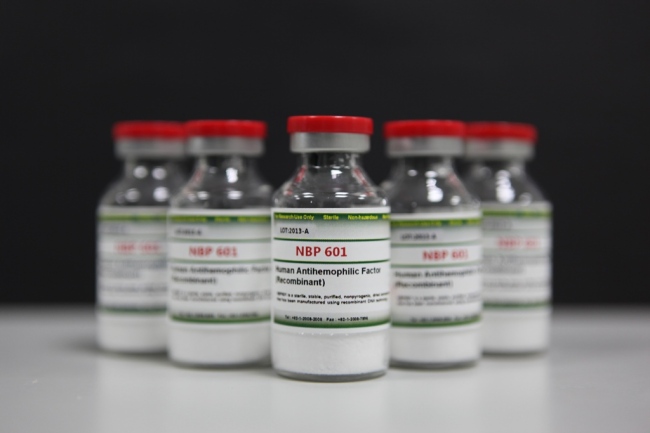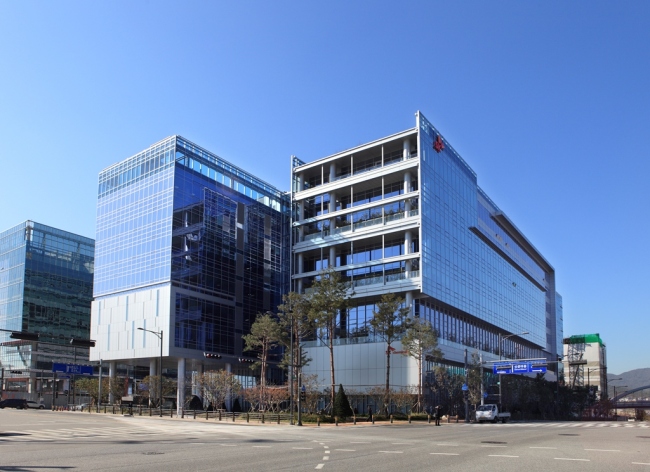SK Chemicals, the pharmaceutical unit of South Korea’s SK Group, said Wednesday it has submitted its self-developed hemophilia drug NBP601 for review and subsequent approval by the European Medicines Agency.
The announcement, which comes as SK awaits the drug’s approval from the U.S. Food and Drug Administration, draws the company a step closer toward commercializing the recombinant DNA drug in global markets.
 |
SK Chemicals` hemophilia drug NBP601 (SK Chemicals) |
Lifted by the positive sales outlook, SK Chemicals’ shares rose by around 2.43 percent to close at 71,700 won ($61.10) on Wednesday.
“After submitting the approval request to enter the U.S. market in July, SK Chemicals has now completed the necessary processes to enter European markets. This signifies that SK Chemicals’ research and development has earned unquestionable recognition in overseas markets,” said Kim Hoon-taek, head of SK Chemicals’ Innovation R&D Center.
“We will continue innovation in R&D by successfully completing clinical trials of new medications that will treat intractable illnesses,” he said.
NBP601, developed by SK Chemicals and licensed out to Australia-based biotech company CSL Ltd. in 2009, is a recombinant DNA drug to treat hemophilia.
Hemophilia is a rare genetic disorder, found mostly among males at birth, in which the blood does not clot normally due to a missing or defective factor VII, a clotting protein. Hemophilia affects one in every 5,000 male births, according to the U.S.-based Centers for Disease Control and Prevention.
 |
The SK Chemicals headquarters located at Pangyo, Gyeonggi Province. (SK Chemicals) |
SK’s hemophilia treatment has been shown to reduce annualized bleeding rates among patients to 1.14, down by 40 percent compared to existing treatments in circulation, according to clinical trial data presented at the International Society on Throbosis and Haemostasis earlier this year.
Around 94 percent of the 848 patients who received two injection dosages of NBP601 showed positive blood control, while 81 percent saw positive treatment results under one injection dosage, according to the data.
As the clinical trials, conducted in the United States and across Europe, have successfully proven the drug’s safety and effectiveness, SK Chemicals expects the drugs to be approved without difficulty in the U.S. and Europe next year.
“As the approval process by protocol takes about one year to complete, though differing by agency, we expect the drug to be approved in the U.S. as early as the first half of next year,” a SK Chemicals spokesperson told The Korea Herald.
SK Chemicals said it “plans to commercialize the new drug (in the U.S. and Europe) upon receiving approval.” It declined to comment on specific sales targets or foreseen profits stemming from the drug’s sales, citing corporate compliance agreements with its licensing partner CSL.
By Sohn Ji-young (
jys@heraldcorp.com)









![[Today’s K-pop] Blackpink’s Jennie, Lisa invited to Coachella as solo acts](http://res.heraldm.com/phpwas/restmb_idxmake.php?idx=644&simg=/content/image/2024/11/21/20241121050099_0.jpg)